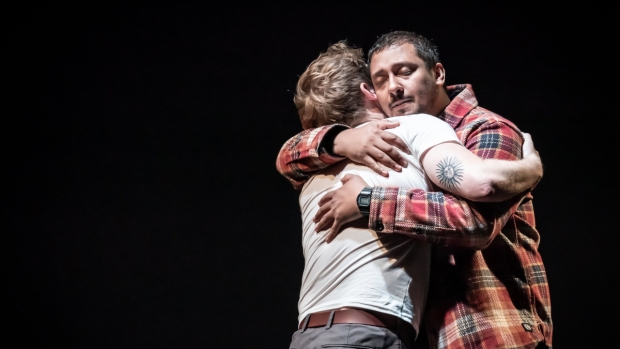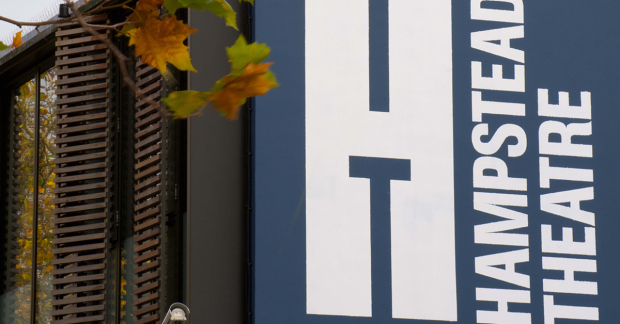”Sons of the Prophet” at Hampstead Theatre – review

© Marc Brenner
If the Hampstead Theatre has recently been rocked by the unexpected cutting of its NPO status and the subsequent resignation of its artistic director, it didn’t show tonight. Something of a return to form for the venue that champions new writing in drama, the Pulitzer Prize-nominated Sons of the Prophet is a character-driven comedy-drama that may not ignite quickly but ultimately finds its fuel.
From award-winning playwright Stephen Karam, the piece follows Joseph Douaihy’s struggle to navigate a challenging assortment of concurrent crises. These range from the classic (bereavement and an overbearing boss) to the comparatively modern (inadequate healthcare and inappropriate romantic encounters). Karam has plenty to say about legacy and identity as Joseph clashes with the more traditional beliefs of his Lebanese relatives.
Bijan Sheibani plays on the dialogue’s authentic, conversational feel with super-naturalistic direction that sees jumped cues, concurrent conversations and characters speaking over each other (the latter is specifically per the script’s request). This feels often as clumsy as it does successful, and the realism sought is at odds with the jarring black walls of Samal Blak’s admittedly very clever set design. Curiously, Karam also advocates for a non-realistic design in the early pages of the script, expressing a desire for the theatre to expose the stage’s rear walls and electrical cables if possible. A later scene in which the auditorium itself becomes a contentious school-board meeting is an instantly engaging, if obvious, choice.
Though plenty of this play’s uninterrupted 105-minute running time is filled with thought-provoking dialogue and biting wit, it does have to contend with puzzling initial and final scenes. In these moments, Joseph’s ongoing treatment for unexplained chronic pain is a principal concern of the plot though they bookend an entire narrative in which it is side-lined for more pressing (and theatrically satisfying) fodder. If there ought to be some philosophical takeaway from almost two hours of cumulative angst, there isn’t. It’s simply that life just sucks.
If the first scene between Joseph (Irfan Shamji) and his eccentric boss Gloria (Juliet Cowan) begins on unsteady footing, with tentative, unamplified delivery and a vagueness of an American accent, the arrival of additional supporting characters establishes the piece more solidly. In particular, the addition of Jack Holden as an obliviously privileged broadcaster signals a shift into a more engaging gear, while Eric Sirakian is stellar as Charles, utterly contemporary and easily watchable. Karam’s decision to feature an entire spectrum of incidentally queer characters whose sexuality does not define them or their behaviour is also hugely refreshing.
It seems a shortcoming, however, that the vibrant supporting cast render their protagonist, Joseph, the least compelling character onstage. Overwhelmed by the disinterest, self-centredness, and would-be exploitation of those in his life, Joseph’s spectrum of emotions manifests as a largely unchanging irritation familiar of a long-suffering sitcom husband.
This production is one that squares up to its own challenges – a set filled with realistic details in spite of the playwright’s desire for it to be clearly artificial and disarming, and a drive to make the issues at hand feel current in spite of the now script. Amongst this, an argument endures for Hampstead Theatre’s necessity in the theatrical ecosystem. A play such as this is, would only ever find its UK home at this venue. This may not have been the hit they need to prove their worth at a vital moment, but that isn’t to say it doesn’t deserve the stage.












